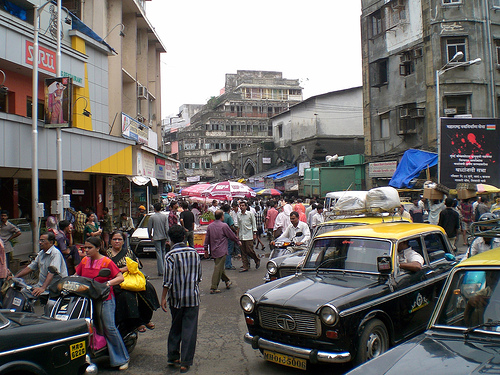I want to share my first impressions as I try to find reasons for the focus on the informal in a conference about ecology.
1-A WAY IN
Designers seem to have a hard time getting into ecology as way of working. The informal allows us a way into the discussion. The word 'informal' seems to stand in for the larger economic, political, environmental, and social contexts that designers cannot fully account for and thus control. This condition then produces many products including built environments.
Using the shorthand 'informal' gives us a way into the problem. We can strategically choose some of the systems to act upon and be flexible to account for the rest. This is what I think Koolhaas means when he talks about the formal and informal growing together.
Koolhas says that he learned that lesson after going to Lagos. However, his design for La Villette was already trying to design such a condition. The design provides the minimum infrastructure required while allowing major sections of the park to change as economy, community, and political-will allow.
 framing informality, OMA's La Villette
framing informality, OMA's La Villette2- WESTERN ANXIETY
Kwinter officially declared NYC dead last night. He says that it is because it is a boring place now. Such a strong statement has to have a cause larger than a few porn shops turning into Disney stores.
Maybe the statement has to more to do with anxiety around the failure of the formal structures in the West. Populations are dropping, immigration increasing, manufacturing and economic strength shifting to other nations. Western nations are facing a changing culture at home and a shifting power structure abroad. As formal structures fail informal systems take over (American Tent Cities in NYT).
This anxiety was partially at display last night. Koolhaas, Bhabha, and Kwinter talked about Lagos and Mumbai with excitement and interest, about New York and Europe with a measure of pessimism. Studies in the informal are a way to then anticipate and mediate changes in Western cities as well as in developing nations.
 Mumbai Street Life
Mumbai Street Life New York as Mall
New York as Mall3- PREEMPTING TOP-DOWN ECOLOGICAL SOLUTIONS
I wrote earlier about Slave City and its dystopian look at the future of Ecological Cities. It shows what can happen when the need for efficiency becomes the primary concern of the formal urban, architectural, and social structures.
I think that all the talk about informality is trying to preempt such a scenario. It is partly about the humility by designers that Koolhaas and Kwinter called for last night. They are telling designers that they will really never know everything about a condition, there is no reason design as if you do... there are intelligences out there as great as your own.
 Slave City - Model Work Sleep Unit
Slave City - Model Work Sleep Unit
ReplyDeletedo you want to study in abroad today or in the next intake. we are the best and top rated study abroad consultancies in india with good visa assurance.we help you in filing the f1 visa for you in very less time. we are also help you with information needed to apply for the college university.
study abroad consultants in hyderabad